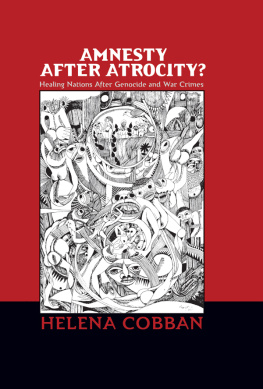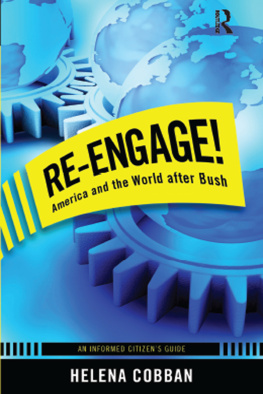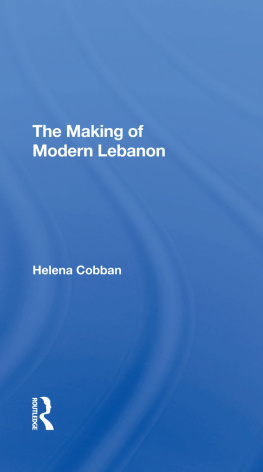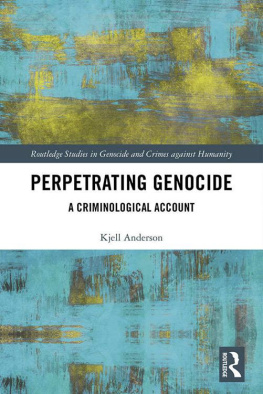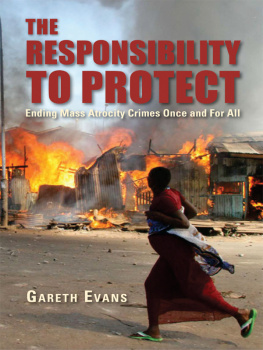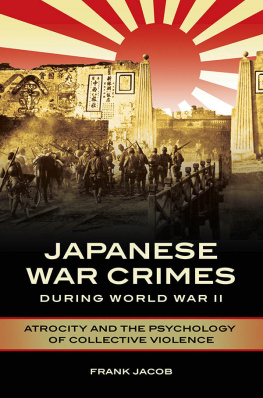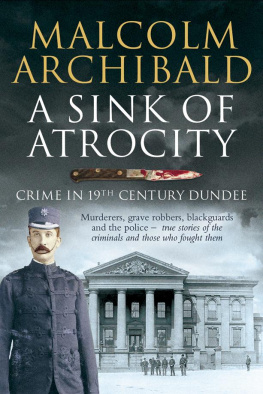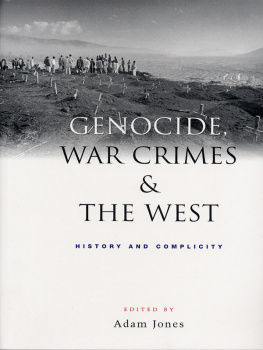Helena Cobban - Amnesty After Atrocity?: Healing Nations After Genocide and War Crimes
Here you can read online Helena Cobban - Amnesty After Atrocity?: Healing Nations After Genocide and War Crimes full text of the book (entire story) in english for free. Download pdf and epub, get meaning, cover and reviews about this ebook. year: 2006, publisher: Routledge, genre: Politics. Description of the work, (preface) as well as reviews are available. Best literature library LitArk.com created for fans of good reading and offers a wide selection of genres:
Romance novel
Science fiction
Adventure
Detective
Science
History
Home and family
Prose
Art
Politics
Computer
Non-fiction
Religion
Business
Children
Humor
Choose a favorite category and find really read worthwhile books. Enjoy immersion in the world of imagination, feel the emotions of the characters or learn something new for yourself, make an fascinating discovery.
- Book:Amnesty After Atrocity?: Healing Nations After Genocide and War Crimes
- Author:
- Publisher:Routledge
- Genre:
- Year:2006
- Rating:4 / 5
- Favourites:Add to favourites
- Your mark:
- 80
- 1
- 2
- 3
- 4
- 5
Amnesty After Atrocity?: Healing Nations After Genocide and War Crimes: summary, description and annotation
We offer to read an annotation, description, summary or preface (depends on what the author of the book "Amnesty After Atrocity?: Healing Nations After Genocide and War Crimes" wrote himself). If you haven't found the necessary information about the book — write in the comments, we will try to find it.
Amnesty After Atrocity?: Healing Nations After Genocide and War Crimes — read online for free the complete book (whole text) full work
Below is the text of the book, divided by pages. System saving the place of the last page read, allows you to conveniently read the book "Amnesty After Atrocity?: Healing Nations After Genocide and War Crimes" online for free, without having to search again every time where you left off. Put a bookmark, and you can go to the page where you finished reading at any time.
Font size:
Interval:
Bookmark:
2 Park Square, Milton Park, Abingdon, Oxon OX14 4RN
711 Third Avenue, New York, NY 10017, USA
Product or corporate names may be trademarks or registered trademarks, and are used only for identification and explanation without intent to infringe.
ISBN 13: 978-1-59451-317-6 (pbk)
| ADL | Association for the Defense of Human Rights and Public Liberties |
| ANC | African National Congress |
| CAVR | Commission for Reception, Truth, and Reconciliation |
| CCM | Christian Council of Mozambique |
| CNE | National Elections Commission |
| Codesa | Conference for a Democratic South Africa |
| COSAG | Concerned South Africans Group |
| DDR | disarming, demobilizing, and reintegrating |
| DRC | Democratic Republic of Congo |
| FADM | Mozambican Armed Defense Force |
| FAM | Mozambique Armed Forces |
| FH | Freedom House |
| GPA | General Peace Agreement |
| HDI | Human Development Index |
| HRVC | Human Rights Violations Committee |
| ICC | International Criminal Court |
| ICTR | International Criminal Tribunal for Rwanda |
| ICTY | International Criminal Tribunal for Yugoslavia |
| IDPs | internally displaced persons |
| IEC | Independent Electoral Commission |
| IFP | Inkatha Freedom Party |
| IJR | Institute for Justice and Reconciliation |
| MHRL | Mozambican Human Rights League |
| MK | Umkhonto we Sizwe (Spear of the Nation) |
| MPNP | Multi-Party Negotiating Process |
| NECC | National Education Coordinating Committee |
| NP | National Party |
| NSGJ | National Service for Gacaca Jurisdictions |
| NURC | National Unity and Reconciliation Commission |
| OIOS | Office of Internal Oversight Services |
| OTP | Office of the Prosecutor |
| PAC | Pan-African Congress |
| PDR | Party for Democracy and Renewal |
| PRI | Penal Reform International |
| R&R | Reparation and Rehabilitation |
| RPF | Rwandan Patriotic Front |
| RTLM | Radio et Tlvision Libre des Milles Collines |
| SABC | South African Broadcasting Corporation |
| SANDF | South African National Defense Force |
| SAP | South African Police |
| SE | Sant Egidio Community |
| TEC | Transitional Executive Council |
| TRC | Truth and Reconciliation Commission |
| UDF | United Democratic Front |
| UNAMIR | United Nations Assistance Mission for Rwanda |
| UNDP | UN Development Program |
Font size:
Interval:
Bookmark:
Similar books «Amnesty After Atrocity?: Healing Nations After Genocide and War Crimes»
Look at similar books to Amnesty After Atrocity?: Healing Nations After Genocide and War Crimes. We have selected literature similar in name and meaning in the hope of providing readers with more options to find new, interesting, not yet read works.
Discussion, reviews of the book Amnesty After Atrocity?: Healing Nations After Genocide and War Crimes and just readers' own opinions. Leave your comments, write what you think about the work, its meaning or the main characters. Specify what exactly you liked and what you didn't like, and why you think so.

